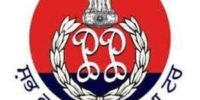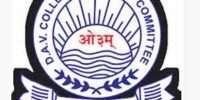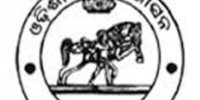BEO Exam Syllabus in Tamil & English PDF | BEO Exam Syllabus 2023 | BEO Exam Syllabus in Tamil | TN TRB BEO Syllabus 2023 | Block Education Officer Exam Pattern | TN TRB BEO Syllabus in Tamil | Block Education Officer Syllabus
BEO Exam Syllabus in Tamil & English PDF | BEO Exam Syllabus in Tamil @ www.trb.tn.nic.in BEO Syllabus in Tamil: The Tamil Nadu Teacher Recruitment Board will host a recruitment exam for several Block Education Officer Positions. Those who have applied for this TN TRB Block Education Officer Recruitment should check and confirm the most recent TN TRB BEO Exam syllabus and BEO Exam Pattern on the organization’s official website. The BEO Exam Syllabus/ BEO Exam syllabus in Tamil pdf will be available soon on the authority’s official website. Everyone should study the BEO Exam Syllabus PDF/ BEO Exam Syllabus IN Tamilnadu/ BEO Exam pattern from the website and use it as a reference for comprehensive preparation. Before taking the test, all applicants must agree to the BEO Exam Syllabus/BEO Exam Syllabus in Tamil PDF. Participants looking for Government of Tamilnadu Jobs could take advantage of this opportunity.
 |
|
| TN TRB Block Educational Officer (BEO) Books 2023 | TN TRB Block Educational Officer (BEO) Salary 2023 |
| TN TRB BEO Previous Year Question Papers PDF (Tamil/English) | TN TRB BEO Recruitment 2023 |
TN TRB Block Education Officer Syllabus PDF Download in Tamil | TN TRB BEO Syllabus
The TN TRB Block Education Officer syllabus is vital for every exam since it determines the significance of the specific areas on which the applicants’ skills are examined. We have provided some TN TRB Block Education Officer (BEO)o Exam Preparation Tips to help you with your preparation. For more upcoming State Govt Jobs, click here
- On this dashboard, you can get find free TN TRB Block Education Officer (BEO) Previous year question papers/TN TRB BEO Previous year question papers in Tamil
- Knowing the TN TRB Block Education Officer Exam Syllabus & Exam Pattern simplifies preparation by specifying the topics on which a nominee may be examined.
- It is critical to grasp the BEO Exam pattern, as well as the exam plan, and to prepare properly.
- Entrants should begin their preparation and study programs as soon as possible in order to complete the whole TN TRB BEO Syllabus/TN TRB BEO Syllabus 2023 on time.
- To qualify for the test, one must obtain the minimum qualifying marks.
| Notification Details | |||||
|---|---|---|---|---|---|
| Recruiter | Tamil Nadu Teacher Recruitment Board | ||||
| Designation | Block Education Officer | ||||
| Job Location | Tamil Nadu | ||||
| Vacancies/Post | Multiple | ||||
| Official Website | https://www.trb.tn.gov.in/ | ||||
| Join our Telegram | |||||
TN TRB BEO Recruitment: Selection Process
- Compulsory Tamil Language Eligibility Test (Objective Type)
- Main Written Exam (Objective Type)
- Certificate Verification (CV)
TN TRB BEO Exam Scheme 2023 | BEO Exam Scheme 2023 in English
- The online computer-based exam comprises of 150 multiple-choice questions (MCQs), each with one mark.
- There will be no negative evaluations.
- The questions will be available in English as well as Tamil.
TN TRB BEO Exam Scheme 2023 in Tamil | BEO Exam Scheme 2023 in Tamil
- ஆன்லைன் கணினி அடிப்படையிலான தேர்வில் 150 multiple-choice questions (MCQ கள்)
- ஒவ்வொரு கேள்வியும் ஒரு (01) மதிப்பெண்ணைக் கொண்டு செல்லும்.
- எதிர்மறை மதிப்பீடுகள் எதுவும் இருக்காது.
- கேள்விகள் ஆங்கிலம் மற்றும் தமிழ் ஆகிய இடங்களில் கிடைக்கும்.
TN TRB BEO Exam Pattern 2023 in English| BEO Exam Pattern 2023 in English
Having a fair idea of the syllabus and exam pattern is helpful in tackling the exam with ease. The commission releases the exam pattern in the form of a PDF file before the exam. The candidates can check out this page for more info related to the syllabus and Exam pattern
Part A: Compulsory Tamil Language Eligibility Test (Objective type)
| Subject | Total Questions + Marks | Duration | Minimum Qualifying Marks |
| Tamil Language Eligibility Test – Part – A Syllabus for 10th standard
level |
30 Questions + Marks | 30 Minutes | 40% |
Part – B: Main Subject (Objective type)
| Subject | Total Questions | Total Marks |
| General Paper comprising of subjects Tamil, English, Mathematics, Physics, Chemistry, Botany, Zoology, Biology, History, Geography in Degree standard level | 110 Questions | 110 Marks |
| General Knowledge and Current Affairs | 10 Questions | 10 Marks |
| Educational Methodology |
30 Questions | 30 Marks |
| Total Marks | 150 Questions | 150 Marks |
| Duration: 03 Hours | ||
TN TRB BEO Exam Pattern 2023 in Tamil | TRB BEO Exam Pattern 2023 in Tamil
| தலைப்புகள் | மொத்த கேள்விகள் | மொத்த மதிப்பெண்கள் |
| தமிழ், ஆங்கிலம், கணிதம், இயற்பியல், வேதியியல், தாவரவியல், விலங்கியல், உயிரியல், வரலாறு, பட்டம் நிலையான மட்டத்தில் புவியியல் போன்ற பாடங்களைக் கொண்ட பொது அறிக்கை | 110 கேள்விகள் | 110 மதிப்பெண்கள் |
| பொது அறிவு மற்றும் நடப்பு விவகாரங்கள் | 10 கேள்விகள் | 10 மதிப்பெண்கள் |
| Educational Methodology (கல்வி முறை) | 30 கேள்விகள் | 30 மதிப்பெண்கள் |
| மொத்த மதிப்பெண்கள் | 150 கேள்விகள் | 150 மதிப்பெண்கள் |
| Duration: 03 Hours | ||
TN TRB Block Education Officer Recruitment Syllabus 2023: Topic Wise
It is important to have a complete understanding of the exam system and the syllabus of the exam that can be accurately understood with the help we have provided in this dashboard. To pass any exam, applicants must have the following two things: A solid preparation strategy and the latest BEO Exam syllabus. To achieve this, it is essential to know the syllabus in-depth and create a smart strategy for exam preparation
Part I – Core Subjects
Unit 1 – History of Tamil Literature
- Sangam Age to Present
– Sangam Literature – Notes on Sangam Literature
– Compilation Method of Idylls (Paattu) and Anthologies (Thogai)
– Significance of Sangam Literature
- Eighteen Lesser Texts (Pathinenkilkanakku)
- Significance of Tamil Books of Law (Needhi Noolgal)
- The Five Great Epics (Aimperumkappiyangaḷ)
- The Five Small Epics (Ainchirumkappiyangal)
- Bhakti Literature, Thevaram, Naalayira Dhivya Prabhandham, Thirumandhiram, Thiruppugazh, Pattinathaar, Arunagirinathar, Thaayumaanavar, Vallalar, Kambaramayanam, Mahabharatham, Periya Puranam, Thiruvilayadal Puranam
- Sitrilakkiyangal, 96 Prabhandhangal, Kovai, Pillaitamil, Kalambagam, Ula, Thoodhu, Parani, Pallu, Kuravanji
- Religious sects growth by Tamil – Jainism, Buddhism, Islam, Christianism
- Siddhargal, Social Reformation (Samooga Seerthiruttham)
- Present Day Tamil Literature – Development of Tamil Prose, Tamil Fiction, Novels, Short Stories, Tamil Folklores, Essays, Literature
- Tamil Grammar – Letters, Words, Meanings, Yaappu Ilakkanam, Ani Ilakkanam
Unit 2 – History of English Literature
- Development of Prose, Poetry, Fiction, Drama and Grammar
- Approaches to Literature (From 1830 to the Present day)
- Modern Drama, Modern Fiction, Literary Movements, Literary Criticism and Theory
- Teaching of English in India, Journalism and Creative Writing in English
- British English Literature – American English Literature, Indian English Literature
- English Language and Grammar, Origin of English Language
- General Characteristics of Old and Middle English
- Rise and Growth of Modern English
- Growth of Vocabulary – Greek, Latin, French, Italian, Scandinavian and other foreign influences, Word Formation, Change of meaning
- The Makers of English – Spenser, Shakespeare, Milton and Dr. Johnson
- Basic English Grammar – Parts of Speech, Tenses, Voice, Singular/Plural, Spelling Reforms
Unit 3 – Mathematical Aptitude and Mental Ability Tests
- Data Analysis, Conversion of Information to Data
- Presentation and Interpretation of Data
- Tables, Graphs and Diagrams, Analytical Interpretation of Data
- Simplification, Percentage,Highest Common Factor (HCF), Lowest Common Multiple (LCM), Ratio and Proportion
- Simple Interest, Compound Interest, Area, Volume, Time & Work
- Decision Making and Problem Solving, Logical Reasoning, Puzzles, Dice Numerals, Verbals and Non verbals
Unit 4 – General Science
Physics:
- Units and Measurement
- Laws of motions
- Force, Work, Energy and Power
- Properties of Matter
- Current Electricity
- Magnetism
- Heat, Light and Sound
- Atomic Devices
- Electronic Devices
Chemistry:
- Classification of Matter
- Stoichiometry
- Types of Reactions
- Extraction of Metals (Zn, Cu, Al, Au, Ag, Pb)
- Acids and Bases
- Periodic Classification
- Chemical Bonding
- Compounds of Carbon, Nitrogen, Oxygen and Sulphur
- Gas Laws
- Drugs, Fertilizers, Dyes and Polymers
Botany:
- Plant Physiology
- Cell – Basic Unit of Life
- Photosynthesis – Its significance
- Families – Malvaceae, Solanaceae, Euphorbiaceae, Musaceae and their economic importance
- Plant Pathology, Bio Technology, Tissue Culture
Zoology:
- Human Physiology – Human Body Functions
- Environmental Biology
- Global Warming- Greenhouse Effect
- Ozone Layer Depletion
- Applied Biology – Genetics and Evolution
- Dairy, Poultry, Pisciculture, Fish Farming, Health and Hygiene
Unit 5 – History – National Movements of Tamil Nadu and India and Constitutional Development
- South Indian History – Culture and Heritage of Tamil People
- Advent of European Invasion, Expansion and Consolidation of British Rule, Effect of British Rule on socio-economic factor
- Social reforms and religious movements
- India since Independence, Characteristics of Indian culture
- Unity in Diversity; Race, colour, language, custom
- India as a secular state, Organizations for fine arts, dance, drama, music, Growth of rationalism
- Advent of Europeans, Early uprising against British rule – 1857 Revolt
- Indian National Congress, Emergence of National Leaders, Growth of Militant Movements
- Role of Tamil Nadu in Freedom Struggle
- Birth of political parties/political system in India since Independence
- Dravidian movement in TN, Political parties and populist schemes
- Prominent personalities in the various spheres; Arts, Science, Literature and Philosophy
- Constitution of India
- – Preamble to the Constitution, Salient features of the Constitution, Union, State and Territory
- – Fundamental Rights, Fundamental Duties, Human Rights Charter
- – Union Legislature, Parliament, State Executive, State Legislature, Assembly, Status of Jammu and Kashmir
- – Local Government, Panchayat Raj – Tamil Nadu
- – Judiciary in law, Rule of Lae/Due Process of Law, Indian Federalism, Centre-State Relations, Emergency Provisions
- – Elections, Election Commissions – Union and State
- – Amendments to Constitution, Schedules to Constitution, Administrative reforms and Tribunals
- – Corruption in Public Life, Anti Corruption Measures
- – Central Vigilance Commission, Lok Adalats, Ombudsman
- – Comptroller and Auditor General of India, Right to Information, Central and State Commissions, Empowerment of Women
Unit 6 – Physical Geography and Economic, Commercial Geography of India
- Universe – Solar System, Earth and Atmosphere, hydrosphere and lithosphere
- Monsoon, rainfall, weather and climate, Water Resources
- Geography of India, Physical Features: Soil, minerals and natural resources, Natural Vegetation, Forest and Wildlife
- Agricultural Pattern, Livestock and Fisheries
- Social Geography, Population – Density and Distribution
- Natural Calamities – Disaster Management
- Geographical Landmarks, Policy on environment and ecology
- Geography of Tamil Nadu
- Nature of Indian economy, Five year plan models – an assessment, Land reforms and agriculture, Application of Science in agriculture
- Industrial Growth, Role of Public Sector and disinvestment, Development of infrastructure, National Income, Rural Welfare oriented programmes
- Social sector problems – population, education, health, employment, poverty, HRD (Human Resource Development)
- Sustainable Economic Growth, Economic Trends in Tamil Nadu
- Energy – Different Sources and Development
- Finance Commission, Planning Commission, National Development Council
- Current Socio-Economic Problems, New Economic Policy and Government Sector, NITI Aayog, Liberalization, Privatization, Globalization and Marketing
Unit 7 – General Knowledge and Current Affairs
- Latest diary of events – National, National Symbols, Profile of States
- Eminent persons & places in news, Sports & Games, Books & Authors, Awards & Honors
- Latest historical events, India & its neighbors
- Science & Technology – Latest inventions
- Latest discoveries in Health Science, Mass media and Communication
Part II – Child Psychology and Pedagogy/Education Methodology
Unit 1 – Human Growth and Development
- Interaction of Nature and Nurture Concept
- Distinction among Growth, Development and Maturation
- General Principles of Growth and Development
- Characteristics, Dimensions of Development – Physical, Cognitive, Emotional, Social and Moral
- Phases of Development and Development Tasks – Infancy, Childhood and Adolescence
Unit 2 – History of English Literature
- Cognitive Process
- Attention – Factors relating to attention, Kinds of attention, Inattention, distraction and division of attention, Span of attention
- Sensation and Perception – Factors relating to perception, Perceptual Errors, Concept Formation – Nature and types of concept
- Piaget’s stages of cognitive development, Bruner’s theory
- Concept Maps, Imagery, Language and Thinking, Reasoning and Problem Solving, Implications to the Teacher
Unit 3 – Social, Emotional and Moral Development
- Social Development – Factors, Social Maturity, Erikson’s Stages of Social Development
- Emotional Development – Meaning, Positive and Negative Emotions, Emotional Control and maturity, Place of emotions in life
- Significance of Emotional Intelligence
- Moral Development – Kohlberg’s stages of Moral Development
Unit 4 – Learning
- Learning – Nature & Importance
- Individual Differences in Learning – Learning Curves
- Factors influencing Learning – Theories of Learning
- Conditioning: Classical and Operant (Pavlov, Skinner), Trial and Error (Thorndike), Learning by Insight (Kohler)
- Transfer of Learning, Learning by imitation
- Levels of Learning – Gagne, Remembering and Forgetting – Curve of Forgetting
Unit 5 – Intelligence and Creativity
- Intelligence – Nature and Distribution
- Theories of Intelligence – Single, Two and Multifactor theories
- Guilford’s structure of the Intellect
- Gardner’s Multiple Intelligence Theory
- Constancy of IQ, Assessment of Intelligence, Users of Intelligence Tests
- Process of Creativity – Creativity and Intelligence
- Identification and promotion of Creativity
- Thinking: Convergent and Divergent Thinking
Unit 6 – Motivation & Group Dynamics
- Motivation and Learning, Kinds of Motives
- Theories of Motives: Maslow’s Hierarchy of Needs, Role of Rewards and Punishments, Level of Aspiration
- Achievement Motivation, Techniques of developing Achievement Motivation
- Motivation in the Classroom Context, Competition and Cooperation
- Leadership Traits, Leadership styles and Classroom Climate
Unit 7 – Personality and Assessment
- Meaning and Definitions of Personality, Major Determinants of Personality, Theories, Types and Traits of Personality
- Psycho-analytic assessment of Personality: Projective and Non Projective techniques
- Aptitude – Concept, types and measurement
- Attitude & interest – Concept and measurement
- Integrated Personality
Unit 8 – Mental Health and Hygiene
- Concept of Mental Health and Hygiene, Conflict and Frustration, Unrest, Adjustment and Maladjustment, Causes of Maladjustment
- Defence Mechanisms, Mental Illness, Juvenile Delinquency
- Promotion of Mental Health of Students and Teachers
Unit 9 – Guidance and Counselling
- Nature, types and need of Guidance and Counseling – Educational, Vocational and Personal
- Identification of Children with Counseling needs
- Counseling Techniques – Individual and Group
- Guidance and Counseling for children with Learning Difficulties
Unit 10 – History of Educational Development in Tamil Nadu
- Educational System – Ancient, Medieval, Modern
- Development and Growth of Modern Educational System (since 1813 to present day)
- Organisational Structures of Educational System in Tamil Nadu (DSE, DEE, SSA, SCERT, Non-Formal)
- Roles and Responsibilities of DEO, CEO, BEO, Acts & Rules, RTE
- Schools run by other departments in Tamil Nadu
- Kallar Reclamation, Forest Department, Adhi Dravida and Tribal Welfare Department and other Departments
- Implementation of Educational Schemes in Tamil Nadu
Method to Download: BEO Exam Syllabus in Tamil PDF/ BEO Exam Syllabus
- Visit the website.
- Go to the syllabus area of the main page and click the link to BEO Exam Syllabus in Tamil PDF/BEO Exam Syllabus 2023 Tamilnadu
- When you click the link, the most recent BEO Exam Syllabus in Tamil PDF/BEO Exam Syllabus 2023 Tamilnadu will appear on your screen.
- Candidates can get the TN TRB BEO Exam Syllabus in Tamil PDF/TN TRB BEO Exam Syllabus 2023 by downloading it as a PDF.
***BEST OFF LUCK***
We hope you find this post useful and informative about the upcoming Examination System, Previous Year’s Question Papers, etc. Naukrimessenger.com is the best website for those who want to participate in government, banking, court, and other exams. Naukrimeesenger.com makes it easy for interested people to read by providing study materials. This is a great way to keep up-to-date with the latest info about government and other Exams. To avail of exclusive job offers, join our Telegram Channel page now!
| Important Details |
|---|




